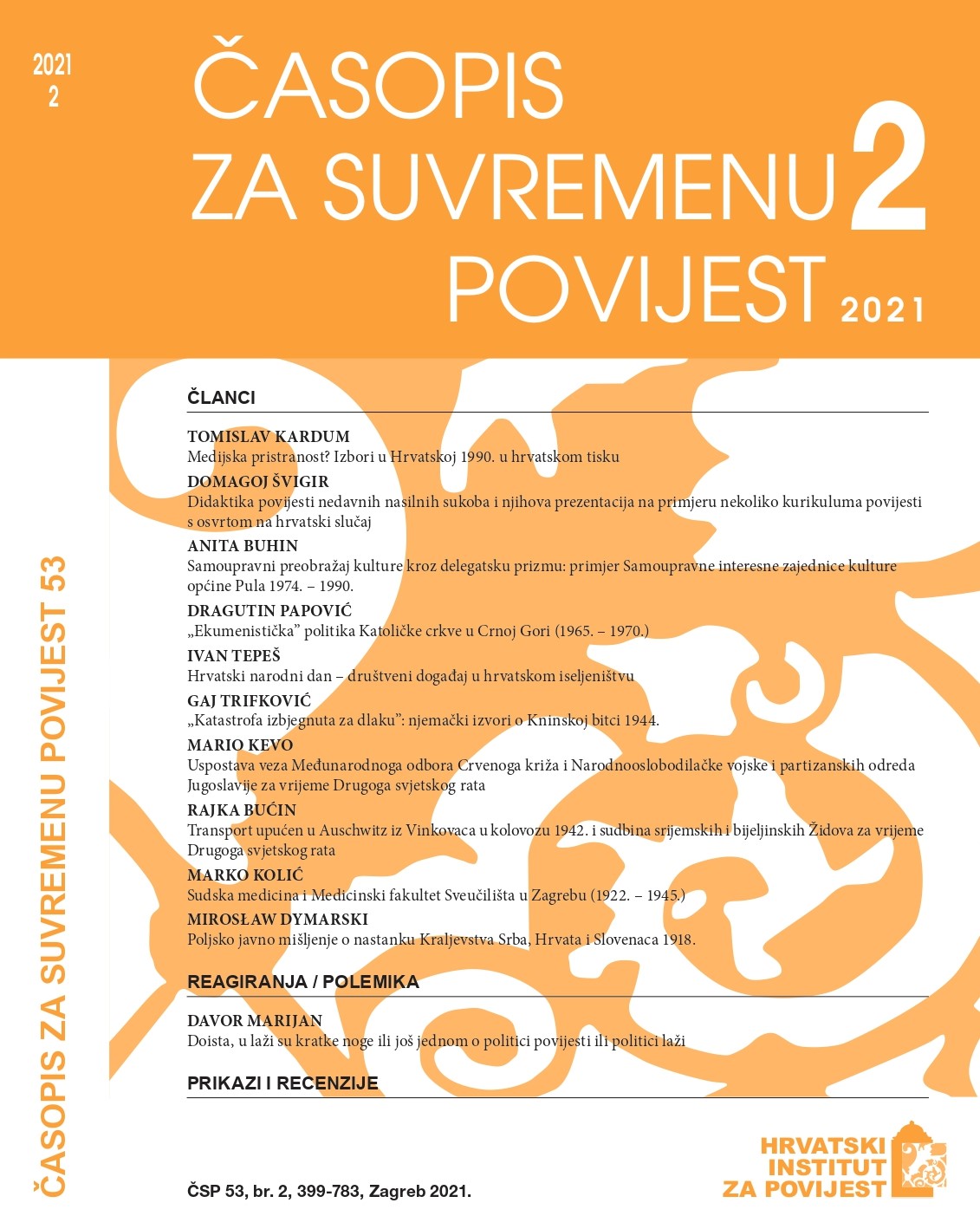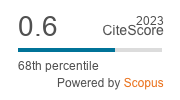The ‘Ecumenical’ Politics of the Catholic Church in Montenegro (1965–1970)
DOI:
https://doi.org/10.22586/csp.v53i2.15115Keywords:
Second Vatican Council; ecumenism; Catholic Church; Montenegro; Archdiocese of Bar; Diocese of Kotor; Archbishop Aleksandar Tokić; Apostolic Administrator Gracija IvanovićAbstract
The ecumenical initiative of the Catholic Church was one of the main outcomes of the Second Vatican Council. Ecumenism aimed for the unification of Christian churches, partnership with other religious communities, and a conciliatory relationship with the socialist regime. In this period, the traditional tolerance between religious communities was practised and the Church established relatively good relations with the government of Montenegro. This is why the Catholic Church in Montenegro embraced ecumenism, which was expressed through the work of the Archdiocese of Bar and the Diocese of Kotor. The Archbishop of Bar, Aleksandar Tokić, and the Apostolic Administrator of the Diocese of Kotor, Gracija Ivanović, made a personal contribution to this initiative. They established close ties with the Orthodox Metropolitan of Montenegro and the Littoral, Danilo Dajković, and the President of the Islamic Community (IC) in Montenegro, Šukrija Bakalović. They succeeded in engaging the Orthodox and Islamic leaders in Catholic religious celebrations, while the Catholic priests attended the religious celebrations of the Orthodox and the Muslims. The Montenegrin authorities had their representatives participate in these ceremonies too. This was all prompted by Catholic ecumenism, while the ecumenical strivings of the Catholic Church in Montenegro were also encouraged by the Vatican, i.e. the highest representatives of the Holy See and Pope Paul VI.
The ecumenism of the Catholic Church in Montenegro had special features. It was of pro-Yugoslav orientation. It respected the religious, national, and traditional characteristics of Montenegro, and aimed for a partnership with the socialist regime. Archbishop Tokić and Administrator Ivanović also felt a strong attachment to Montenegro and Yugoslavia, and therefore cultivated a genuine friendship with the Orthodox and the Muslim population. Despite the sincere efforts and initial enthusiasm, their ecumenism failed because the Serbian Orthodox Church (SOC) in Montenegro did not accept such politics of the Catholic Church. The SOC was willing to maintain good relations and promote the traditional inter-religious tolerance, but no more than that, because it thought that the Catholic Church’s ecumenism was just a new attempt to impose its dominance. This ecumenism failed to achieve unity or the unification of Christians and churches, though it did succeed in strengthening and expanding interfaith cooperation and dialogue between Catholics and Orthodox Christians in Montenegro. Therefore, this policy can only be conditionally called ‘ecumenical’. The Islamic Community accepted a call to strengthen inter-religious dialogue, but it also produced limited results. It was based solely on the contacts between the religious leaders.
Downloads
Published
How to Cite
Issue
Section
License
Copyright (c) 2021 authors and journal

This work is licensed under a Creative Commons Attribution-NonCommercial 4.0 International License.
Copyright holders are the publisher Croatian Institute of History and the authors. Journal of Contemporary History is an Open Access journal. Users are allowed to read, download, copy, redistribute, print, search and link to material, and alter, transform, or build upon the material, or use them for any other lawful purpose as long as they attribute the source in an appropriate manner according to the Creative Commons licence CC BY-NC. The papers published in Journal of Contemporary History can be deposited and self-archived in the institutional and thematic repositories providing the link to the journal's web pages and HRČAK. Journal does not charge article processing charges (APC). The editors assume no responsibility for statements of fact or opinion made by contributors.




